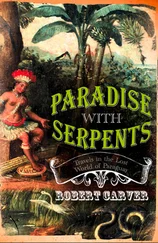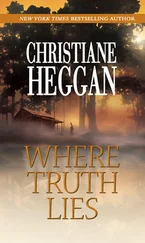Through the good graces of Loren, I managed to get from the jail to the parking lot disguised as a custodian. Loren’s kindly assistant — Rex Wilkers — met me at the Intake-Release Center with a short-sleeved blue shirt that said “Allen” over the pocket, a matching blue cap and a stick-on mustache that matched my hair color not at all. I wondered if it was some wry joke on Loren’s part — the name Allen — then decided it was just something they had handy. But it worked. We embedded ourselves behind a pair of young Latino men who spilled into freedom and the waiting arms and kisses of a small crowd of relatives and friends. We cut across a sidewalk and used a relaxed but forceful stride to disappear into the parking lot. Wilkers had parked up close, and we were enclosed in the semi-security of his dark-windowed Porsche before anyone was the wiser. He dropped me off at the airport, and a few minutes later I paid my way through the long-term parking gate and rolled toward the Interstate.
The afternoon was breezy and warm and the hillsides of south Orange County were still green from the winter rains. The wild artichokes sprinkled the hills between the on-ramps with their thorny purple blooms. A flock of ravens pestered a red-shouldered hawk that was perched on the power line over an auto mall, but the old bird looked too tired to fly; he just hunched within his insolent feathers and ignored the cackling multitude around him. Hang in there, buddy, I thought: from a chickenhawk to a red-shouldered one.
I was driving toward home — Melinda’s, now — without any real idea of why. I was quite a bit less than unwelcome there. Maybe I would arrive as the search warrant was being carried out. And the friendly little hamlet of Laguna Beach was the last place I wanted my face to be seen. But still I headed south on the 405 until I realized the senselessness of it. Then I got off at a big retail complex and went to the movies. I sat in the middle of the dark and nearly empty theater, watching a Hollywood star solve a crime by cloning the memory of a dead victim via frozen seminal fluid implanted in a rat The rat had electrodes attached to its tiny conical head, which then translated its thoughts into 35 mm, SurroundSound images that advanced the plot, complete with music. What effects. I concluded idly that I was, and always had been, in the wrong business.
The haze descended again. I walked from theater to theater, trying to find a movie that might keep it away. No way. I watched the films through a filter I couldn’t take off, through the darkly clouded lens of my predicament. For a while I pretended that this was all over; I had been exonerated and offered back my job as head of CAY. I imagined walking into the department building for the first time, seeing my new work station — surely, the old one would have been turned over to someone else by then; I imagined looking into the faces of the deputies I worked with, and the secretaries and the support staff and the cafeteria workers and even Shopping Carter, and I wondered how on earth they would ever believe, ever really, truly, 100 percent believe that I was not just an innocent man, but a good one. It was hard to imagine. The Irish in me said to fight, hold up my head and walk proudly into whatever wrath awaited me in the coming days, and, later, when I was proven innocent, to do likewise with every person I encountered. I told myself that I would evolve to that, I would rise to the occasion. But for now I was defeated and I wanted little more than a dark room, a large bottle of Herradura and my laptop computer, through which I might contact I. R. Shroud and arrange through him to obtain certain images — just as someone before me, I had reason to hope, had already done.
I thought of Matthew, as I often do when I’m miserable. Good memories can help offset a bad present, but they can also make it worse. It’s always hard to remember the living, vibrant Matt, and not remember the cold, bluing boy who died in my arms as I ran up Coast Highway toward the walk-in clinic that hot summer day. In fact, the parts of that past always come together in my memory, to form a complete, contradictory whole. Matthew’s life becomes Matthew’s death. It is not a remembrance that heals the heart or comforts the soul. It is not a remembrance I can happily live with, but I can hardly conceive of living without it. A drowning man clings to small branches.
As I sat in the theater I thought of one of the last movies Matt and Ardith and I had really enjoyed together, which was The Lion King. I thought of all the merchandise that we bought for him, with pictures of the characters on it. Lion King coloring books. Lion King sing-along tapes. Lion King bedsheets. An aerosol can of Lion King shave cream and a wooden Lion King razor. I remembered bringing a chair into the bathroom for Matt to stand on as we looked into the same mirror and he mimicked my shaving procedure, remembered the way he got more of the stuff in his hair and ears than on his cheeks, remembered Ardith’s proud exclamations of smoothness as she ran her hand over his face when her men were finished. For a moment I could even smell the faint scent of the cream. I remembered the way that, even then, Matthew’s competitive spirit had shown itself: if I shaved one time, he would shave twice; if I shaved twice, he would shave three times; when Ardith judged our shaves as having the same closeness — she only did this once — Matt shaved again to come in first.
And, as I knew it would, thinking about my living son led me unwaveringly to his death. He was expired by the time we lay him on the doctor’s table and I was cleverly locked out of the examination room. I know that now. For five days Ardith and I waited with desperate anticipation for the autopsy results. We believed that the why of his death would free us from a mystery too heavy to bear. Why? Why Matthew? Why us? Why me? It didn’t. The facts of his death, when they were known, only filled us with a sense of luck-lessness so profound we could hardly look at each other after we knew them. I’m always saddened when I read of crime victims who believe that an arrest of the perpetrator, guilty verdict, a stiff sentence, a death penalty will bring “closure” to their agony. People want the mystery solved, the criminal put to death, the amends made. They think they’ll feel better, that it will put an end to their pain as they know it. For me, all the autopsy report brought was an unbearable acknowledgment of the permanency of Matt’s absence. I got fucking closure, all right. Final, absolute and irreversible. But this was not how I wanted to feel at all. I didn’t want closure, or anything like it. I didn’t want his memory to end on a table in a walk-in medical clinic. No. I wanted continuity. And not only a continuation of Matthew’s life — though I knew that was impossible — but a continuation of the life around me, of Ardith and me as husband and wife, of the pulse of our little household, of the paperboy in the morning and the mockingbirds in the evening and the long silences during which we would let our fingers touch across the dinner table and wonder. But we got closure to that, too, and plenty of it. We lost our way. The wind died. The compass fogged. Landfall vanished and the paddles were too small to get us very far. Where were we trying to go, anyway?
Be careful what you wish for.
What I saw most clearly about his death is what I always see: the top of his wet blond-brown head pressed into the crook of my neck, nearly out of eyesight, my big hand behind it, holding him close for warmth and safety and with the conviction that somehow my beating heart would connect to his beating heart if they were just held close enough — it was still beating, wasn’t it? Why are his arms suddenly loose and dangling? And I saw the fractured, up-and-down images along Pacific Coast Highway — the pink homes and white stores, the red oleander and the deep green pine trees, the bright cars and gawking walkers — as they wavered, laboring past us, saw me raising my knees high and digging my bare toes into the sidewalk and stretching my stride longer and longer and holding on to Matt for dear life as I gasped closer to the walk-in clinic. It seemed to get further and further away.
Читать дальше
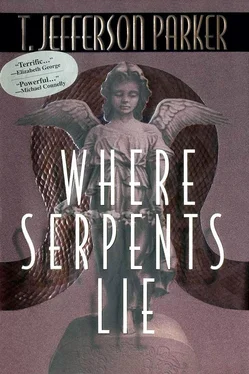


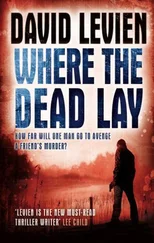
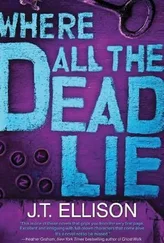

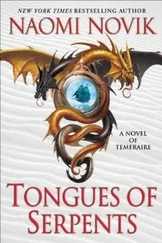

![Джеффри Дивер - Where the Evidence Lies [A Lincoln Rhyme Short Story]](/books/403782/dzheffri-diver-where-the-evidence-lies-a-lincoln-r-thumb.webp)

